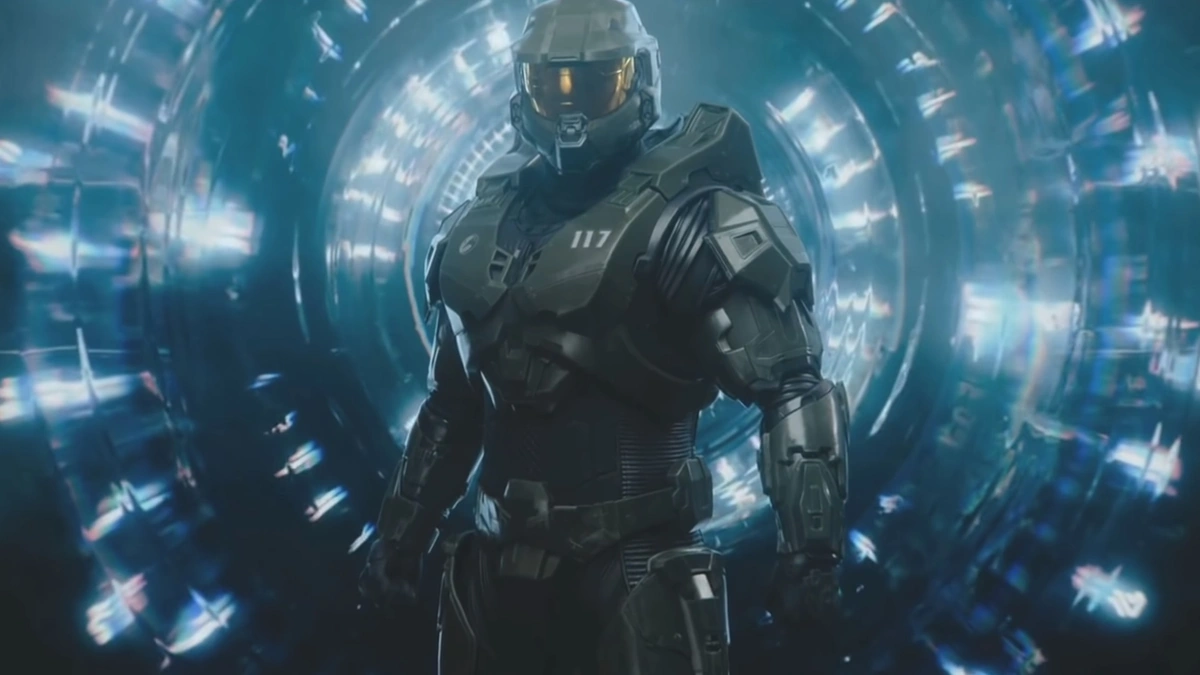The Halo TV series has arrived, and it’s not just another video game adaptation. Let’s be honest, some adaptations have been…rough. But this one? It’s different. It’s sparking conversations, debates, and a whole lot of opinions within the sci-fi community. But why? What makes this adaptation stand out, and why should you, as a sci-fi enthusiast, care?
This isn’t just about the pew-pew action and the shiny armor (although, let’s face it, that’s a big part of it). It’s about the themes, the lore, and the bold choices the creators are making. I initially thought it was another simple video game cash grab, but then I realized it’s way more nuanced than that.
A Fresh Take on a Beloved Universe

The Halo universe is vast and complex, filled with intricate details and a rich history. The TV series isn’t just regurgitating what we already know; it’s expanding it. It’s exploring corners of the universe that the games only hinted at. This expansion is what makes the series interesting, even for hardcore fans who know the lore inside and out.
What fascinates me is the way they’re handling the characters. Master Chief, Cortana, and the other iconic figures are being given new layers, new motivations. This isn’t just a simple retelling; it’s a reinterpretation. And while that might ruffle some feathers, it also opens up the story to new possibilities.
The Emotional Core | More Than Just Action
Sci-fi at its best isn’t just about explosions and spaceships; it’s about exploring the human condition. And the Halo TV series is delving into some pretty heavy themes. Think about it: loyalty, duty, sacrifice, and the cost of war. These aren’t just abstract concepts; they’re being explored through the eyes of characters we’re (hopefully) starting to care about.
The show is also diving into the Spartan program, the controversial project that created Master Chief and his fellow super-soldiers. We’re seeing the ethical implications, the emotional toll, and the sacrifices made in the name of humanity.
Visual Spectacle and Production Value
Let’s be real, a good sci-fi show needs to look good. And the Halo TV series delivers. The special effects are impressive, the sets are detailed, and the overall production value is top-notch. It feels like a big-budget movie stretched out over several episodes.
But visuals alone aren’t enough. The series also needs to be well-directed, well-acted, and well-written. And while opinions on those aspects may vary, there’s no denying that a lot of effort and talent went into bringing this universe to life. The show aims for a cinematic quality that rivals other big-budget sci-fi productions.
Controversies and Divergences | Why They Matter
Okay, let’s address the elephant in the room: the divergences from the source material. Some fans are upset about the changes, the additions, and the liberties taken with the lore. And that’s understandable. When you’re deeply invested in a story, it’s hard to see it change.
But here’s the thing: adaptations are rarely, if ever, 100% faithful. There are always compromises, changes, and reinterpretations. The key is whether those changes serve the story and enhance the overall experience. Are the divergences helping or hurting the overall narrative ? That’s the question we should be asking.
A common critique revolves around character backstories and plot alterations. The show introduces new elements not found in the games, which has led to heated debates among fans about the show’s direction and commitment to the original source material.
For example, some fans have questioned the inclusion of certain subplots, arguing they detract from the core narrative of the Human-Covenant War. Others appreciate the expanded character development and exploration of themes previously untouched in the games.
But here’s the thing: adaptations are rarely, if ever, 100% faithful. There are always compromises, changes, and reinterpretations. The key is whether those changes serve the story and enhance the overall experience. Are the divergences helping or hurting the sci-fi show adaptation ? That’s the question we should be asking.
The Future of Halo | A New Chapter?
The Halo TV series represents a significant step forward for the franchise. It’s not just a video game adaptation; it’s a potential gateway to a wider audience. It’s an opportunity to explore the Halo universe in new and exciting ways.
And while the series has its flaws, it also has a lot of potential. If the creators can continue to build on what they’ve already established, the Halo TV series could become a major force in the sci-fi landscape. But we should always consult Wikipedia Halo TV series for all the news.
Ultimately, the Halo TV series is more than just an adaptation; it’s an evolution. It’s a chance to revisit a familiar world with fresh eyes and explore its hidden depths. And for any sci-fi fan looking for something new and engaging, it’s definitely worth checking out. But first, let’s check outthis article about Jeopardy.
FAQ Section
Frequently Asked Questions
What’s the big deal about the Halo TV series?
It’s a big-budget adaptation of a beloved video game franchise, exploring the Halo universe in new and exciting ways.
Is the Halo TV series faithful to the games?
It takes some liberties with the lore, which has sparked some controversy among fans.
Who stars in the Halo TV series?
The cast includes Pablo Schreiber as Master Chief, Natascha McElhone as Dr. Catherine Halsey, and Jen Taylor as Cortana.
Where can I watch the Halo TV series?
It’s available on Paramount+.
Is the Halo TV series worth watching?
If you’re a sci-fi fan, it’s definitely worth checking out, even if you’re not familiar with the games. The show will keep you on the edge of your seat. But be sure to check out this other amazing article.
Is there going to be a second season of the Paramount+ Halo series?
Yes, a second season has been confirmed, so the story is far from over!




